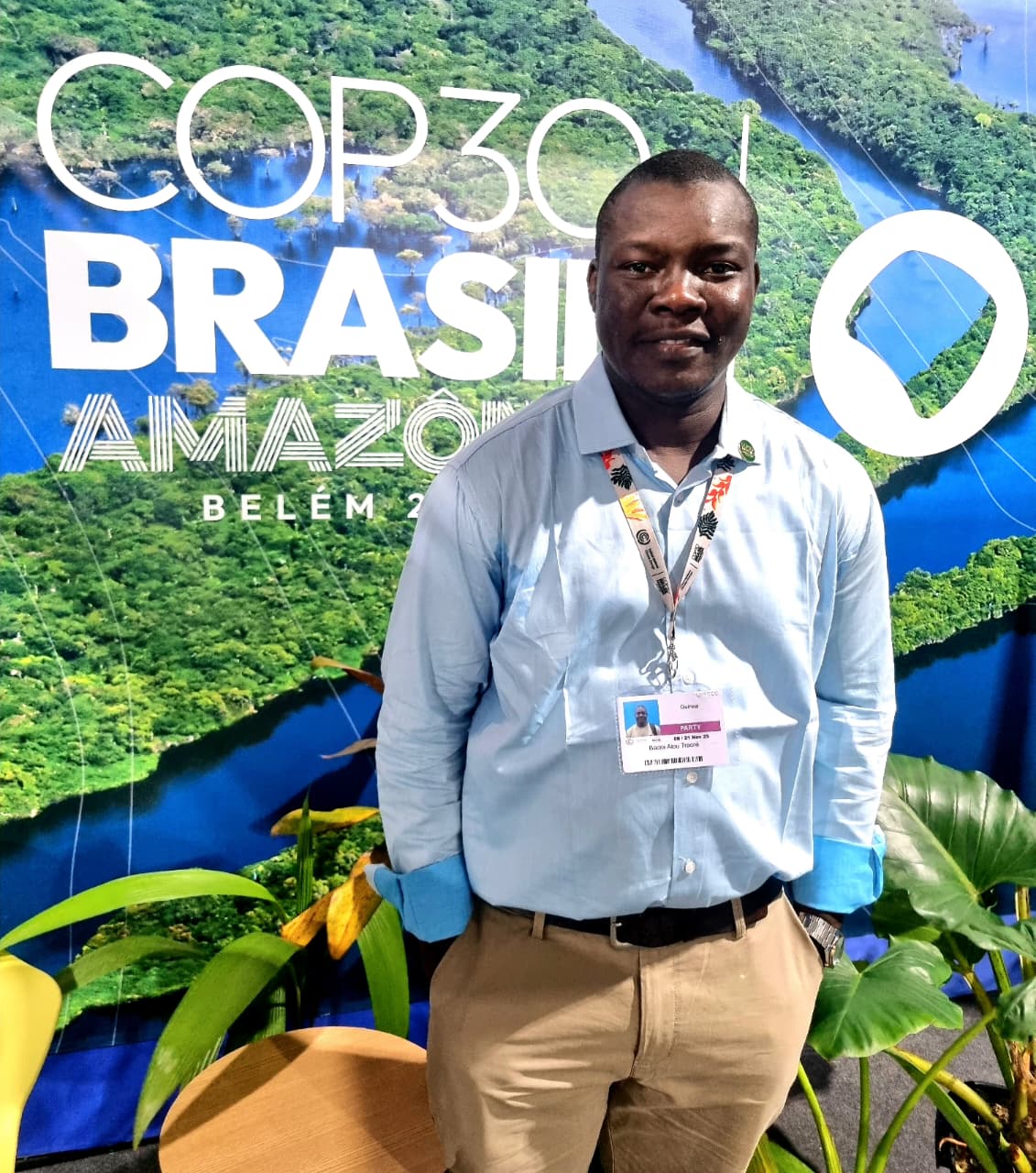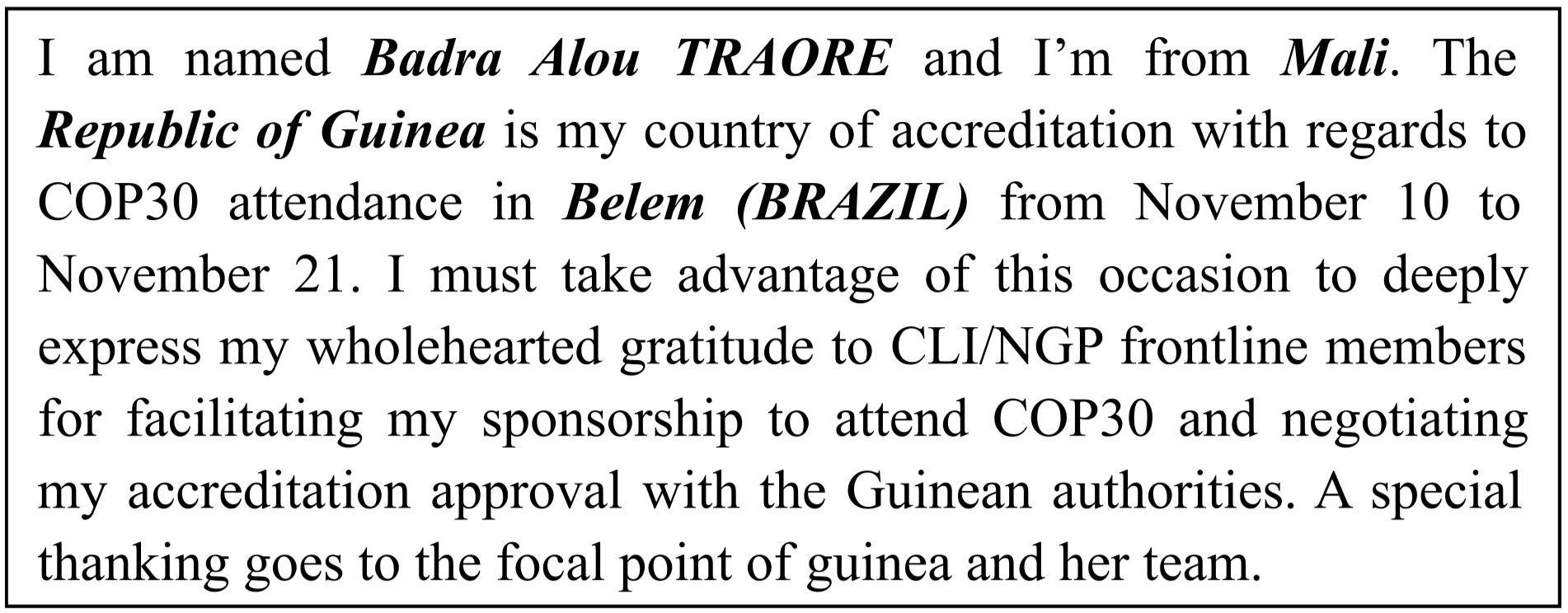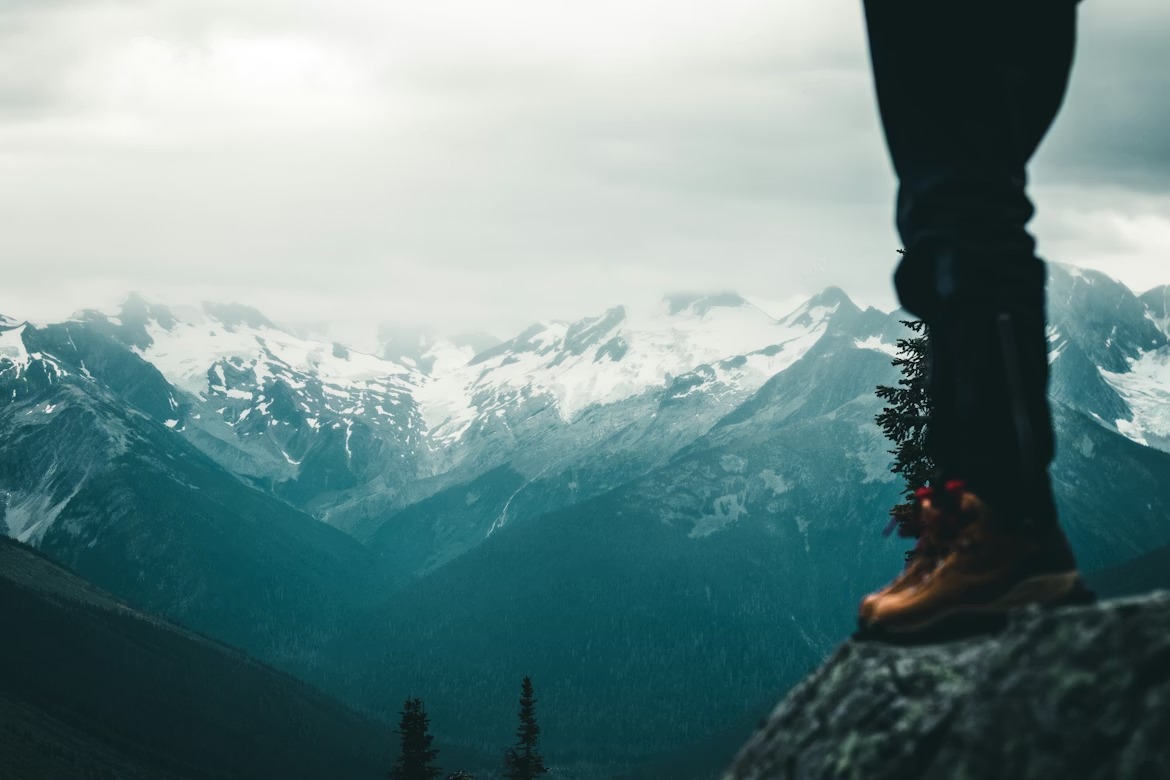
As the whole world gathers in Belém, Brazil for COP30, many important UNFCCC agenda items are being discussed. But among all of them, the one that truly attracted my heart - and the one I am following in Belém and will continue following forever - is Loss and Damage.
My reason is simple and emotional. I come from a Sahelian country in West Africa where many communities, both rural and urban, are suffering heavily from the adverse impacts of climate change. Their pitiful voices stay unheard, and their tears remain unseen - regionally and internationally. Because of that, Loss and Damage is not just a negotiation item for me. It is part of my life story.
Why Loss and Damage Matters Deeply to Me
Loss and Damage refers to the losses and damages linked to the climate change phenomenon. It is a big concern especially for poor communities who have almost no alternative financial support to recover quickly from the disasters they face.
Before coming to COP30, I wanted to widen my understanding in a very practical and human way. So I visited several climate change–affected communities in the southern part of Mali, in the Sikasso region, which is also my hometown.
My first objective was to see with my own eyes the losses and damages.
My second objective was to speak with victims and understand how they are surviving - how they find alternative sources of income and how they keep smiling even during difficult times.
During my visits, I witnessed how drought has caused serious losses: crops destroyed, land degraded, water points drying up. These impacts severely affected agriculture and local economies, increasing food insecurity in the communities I visited.
Because of everything I saw and heard, I strongly believe this is the right time for Mali to express its interest in receiving technical and financial support from the UNFCCC Santiago Network for Loss and Damage, especially through the Fund for Responding to Loss and Damage. Our poor farmers and their families urgently need this assistance.
My First COP Experience and the People Who Helped Me
COP30 is only the second COP I have attended. My first experience was at COP22 in Morocco. And I must honestly share something.
Two personalities shaped my understanding of the UNFCCC process:
- Seyni Nafo, who trusted my competencies and allowed me to attend COP22 as a national delegate.
- Dr. Erin Roberts, who kindly and tirelessly guided me throughout the event - teaching me how to navigate the daily COP agenda, how to use the UNFCCC website, and how to understand the technical concepts.
At the beginning of COP22, I was completely clueless. I didn’t understand mitigation, adaptation, or the missions of CMP, CMA, SBSTA, SBI, IPCC. I couldn’t even differentiate between Annex I and Non-Annex I Parties. But with Dr. Erin’s detailed explanations, reading materials, and continuous encouragement, things slowly became clearer.
Her support helped raise my awareness and understanding of the UNFCCC process. In short, she made me love climate policy research even more.
My Expectations for COP30
As I walk around Belém for COP30, I carry several expectations with me:
- To help push for simpler modalities to access the Fund for Responding to Lossand Damage Fund. So that vulnerable countries like mine can benefit more quickly and more easily.
- To meet and learn from technical experts on Loss and Damage. I am eager to keep learning and to strengthen my understanding for the sake of mycountry and region.
- To understand how other vulnerable countries are coping with climate-induced losses. Mygoal is to bring back inspiration from countries facing similar challenges and try to replicate their successful approaches in Mali.
A Personal Mission With a Collective Purpose

Loss and Damage is not only a negotiation topic - it is the everyday reality of millions of people. As I walk through COP30, I carry with me the voices and experiences of the farmers in Sikasso. Their struggles, their hopes, and their resilience give me the motivation to speak up, to learn more, and to advocate with courage.
During COP30, I had the chance to reconnect with my comrades from the Climate Leadership Initiative’s New Generation Program. Meeting them in person after many virtual exchanges brought me joy and motivation. I was also glad to meet again with members of the New Generation Program coordination team who were present at COP - Dr. Erin Roberts and Honorine Isingizwe - while receiving continuous virtual support from Justina Aurea and Prakriti Koirala. I express my sincere gratitude to all of them for their guidance before COP and for supporting my participation.
My journey from Sikasso to Belém is a personal one, but the fight for climate justice is collective. This COP is one more chapter in the long journey toward fairness, dignity, and support for the communities who need it most.


